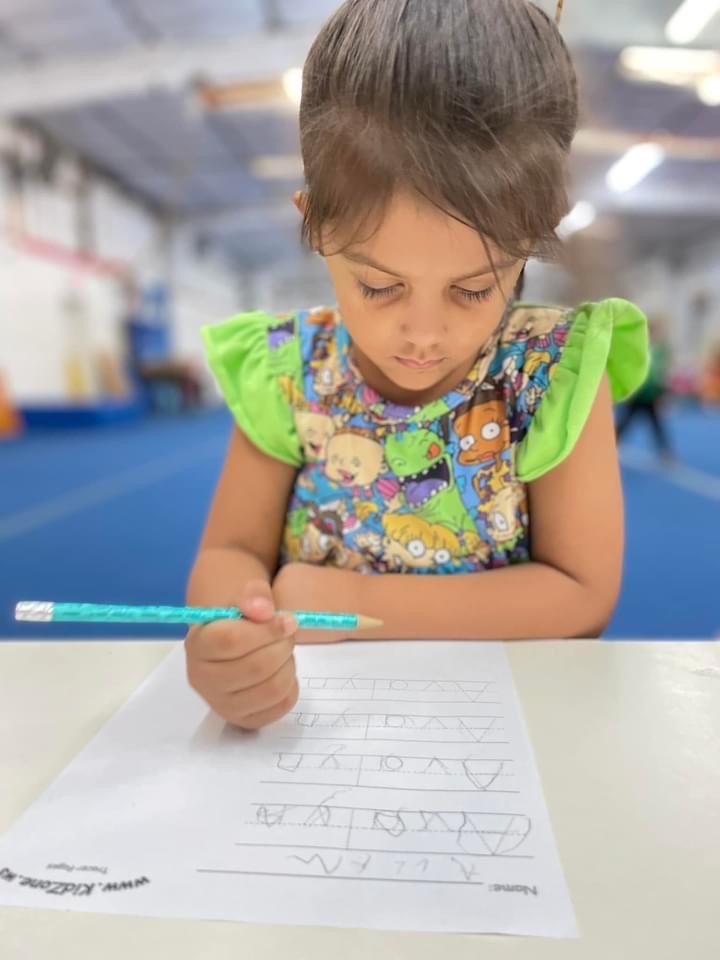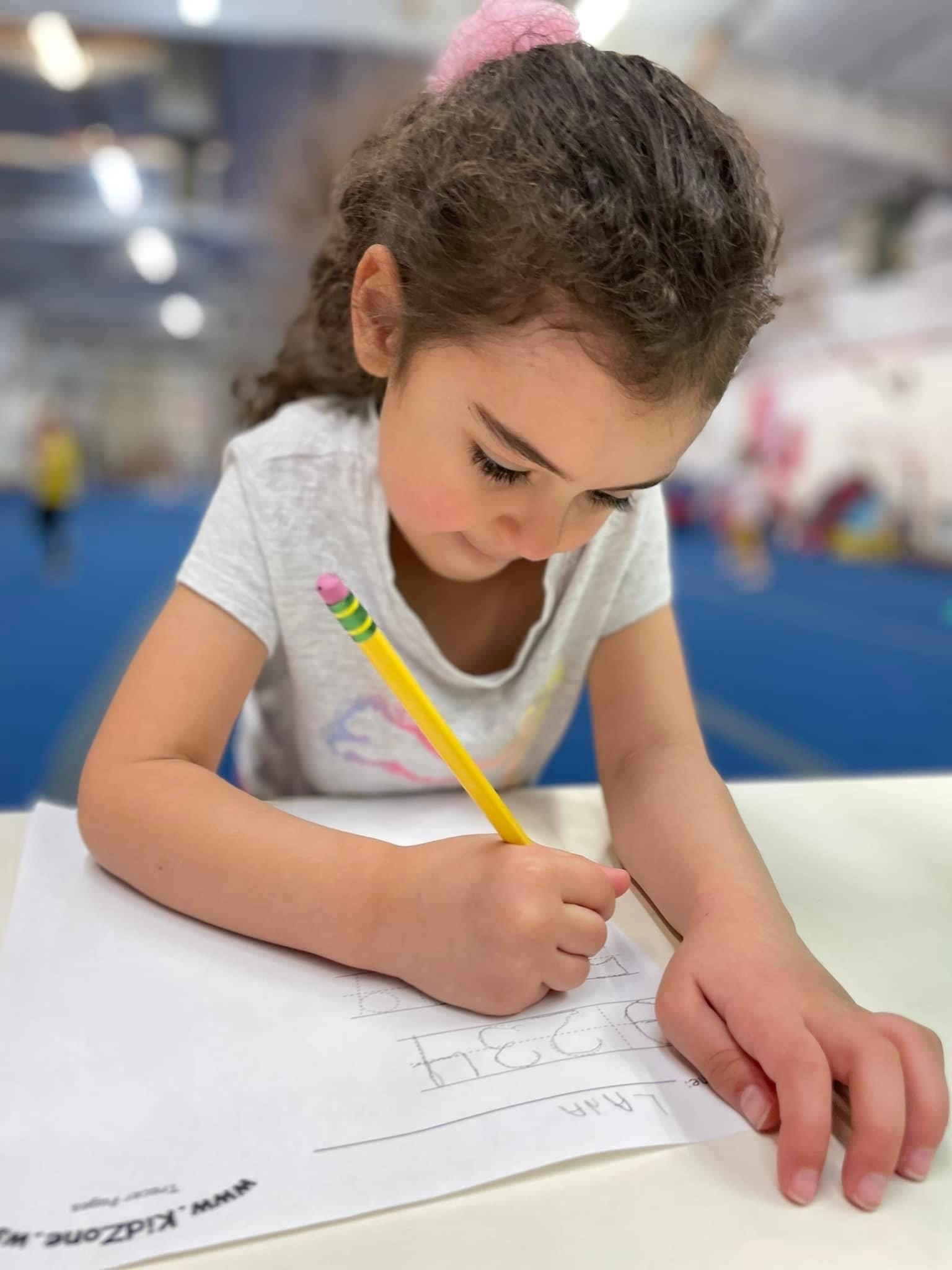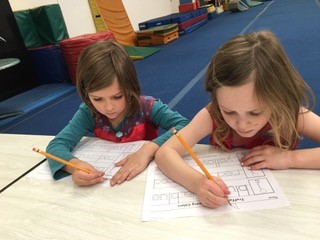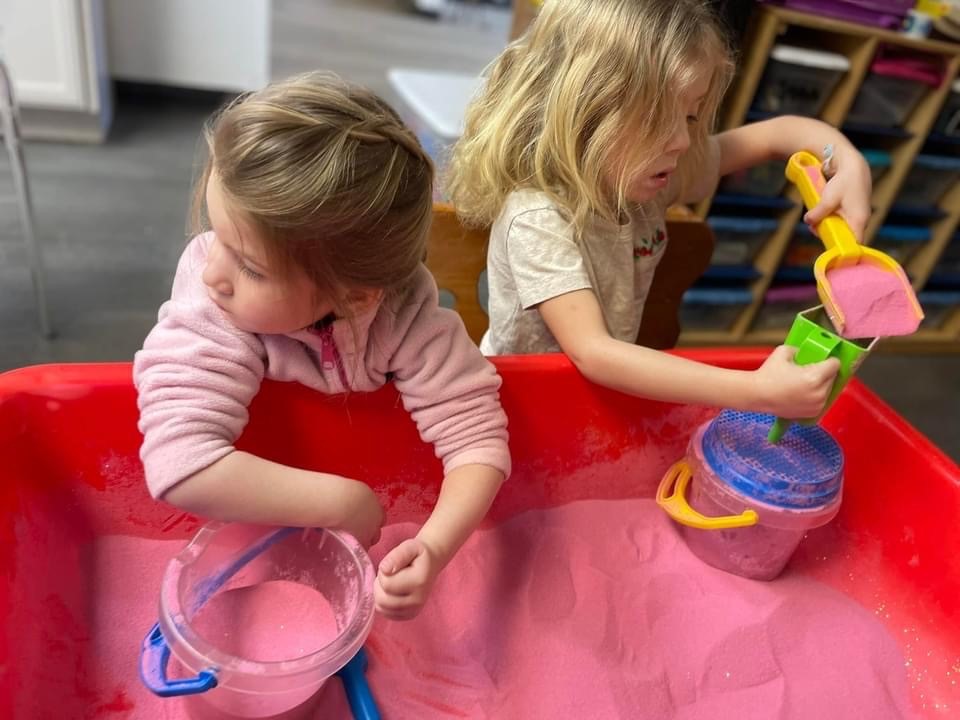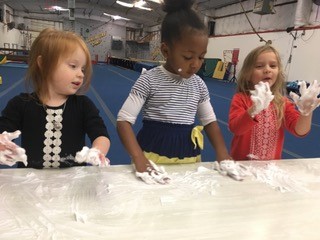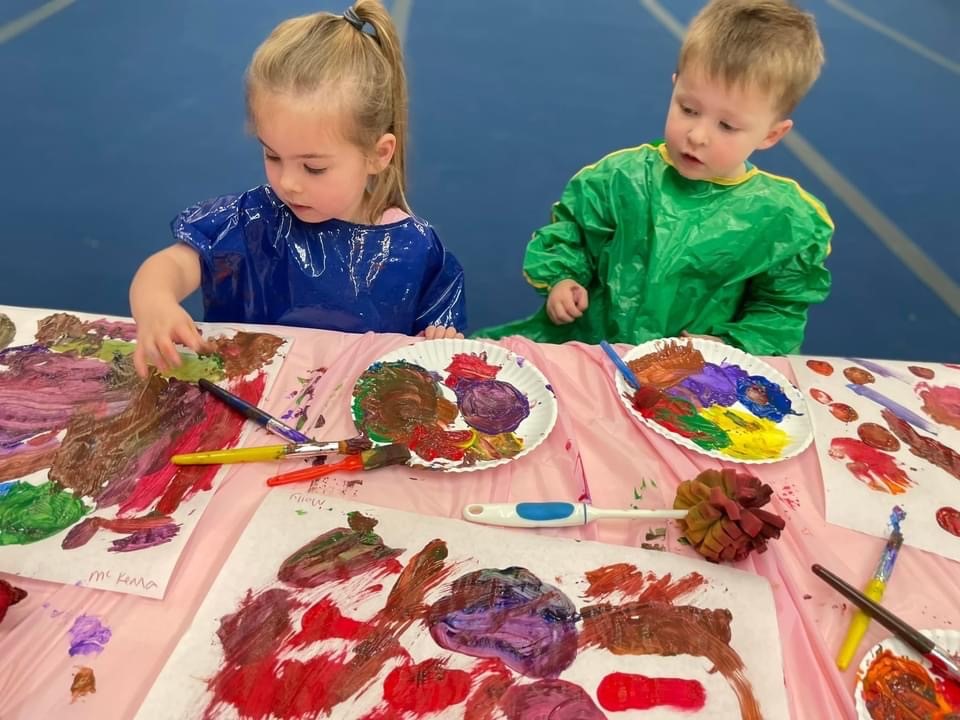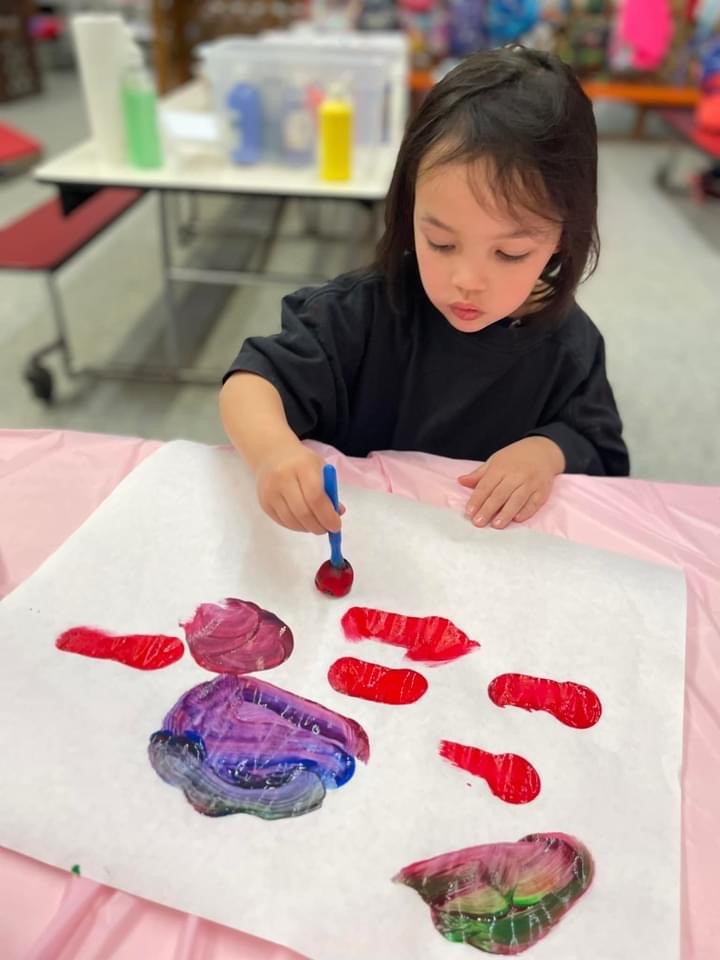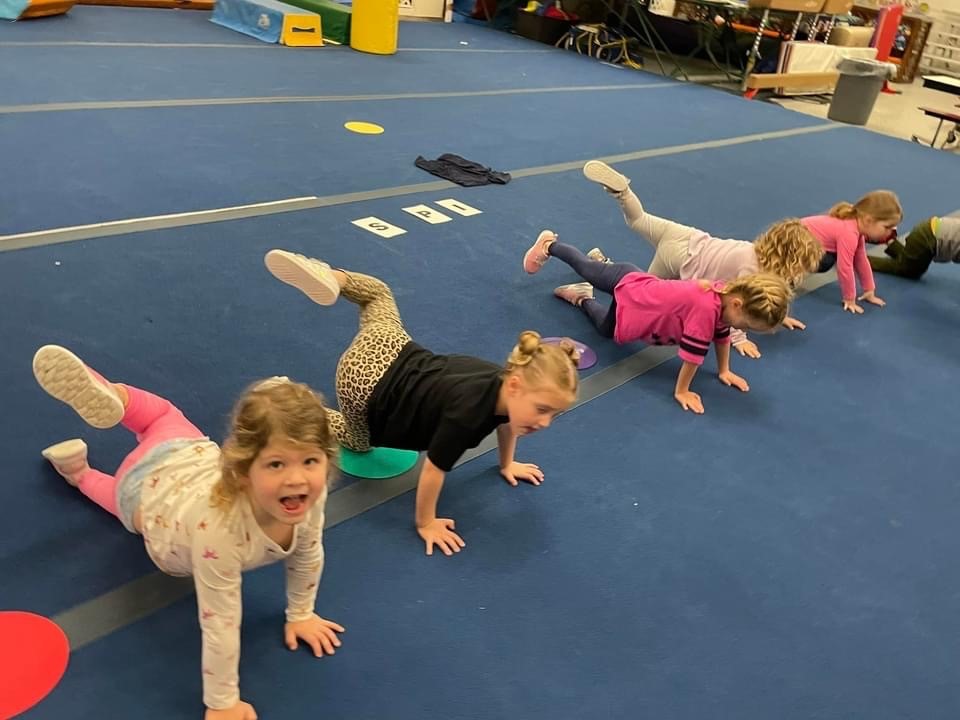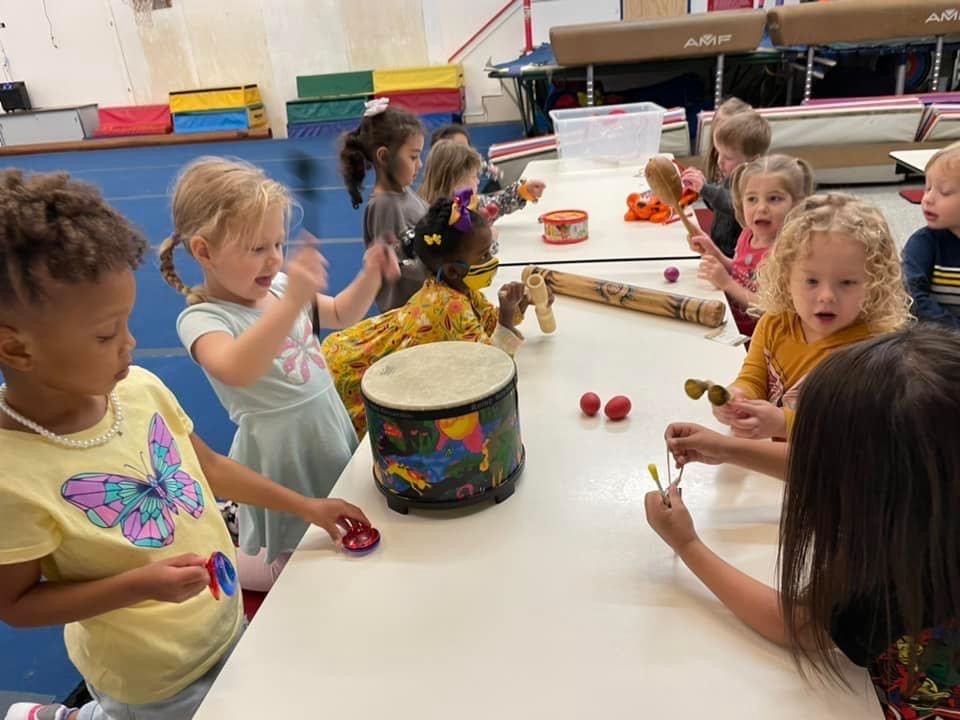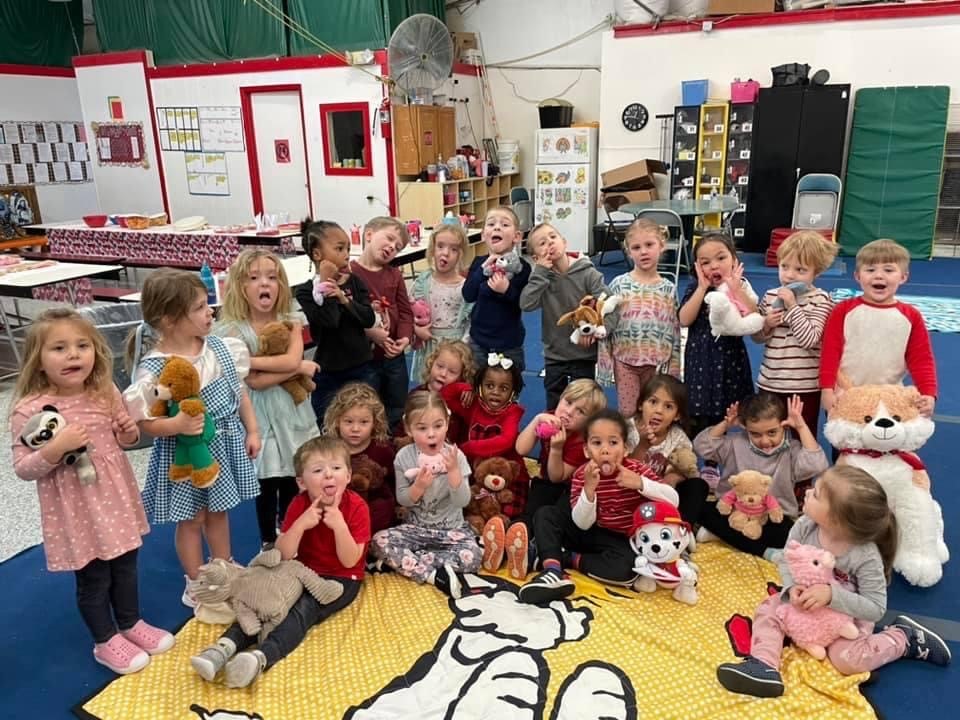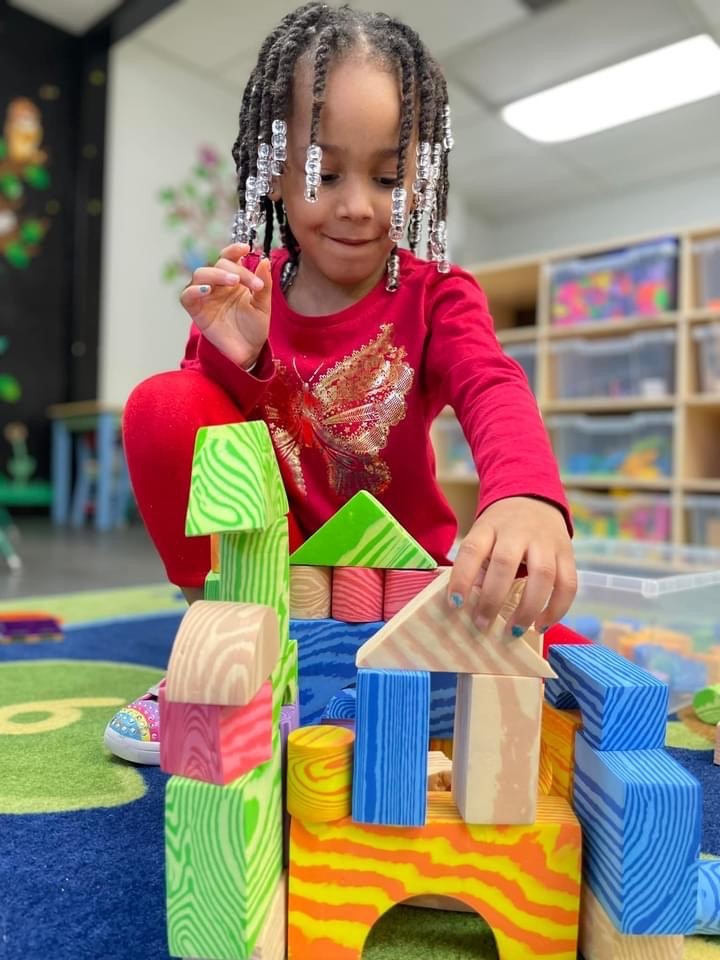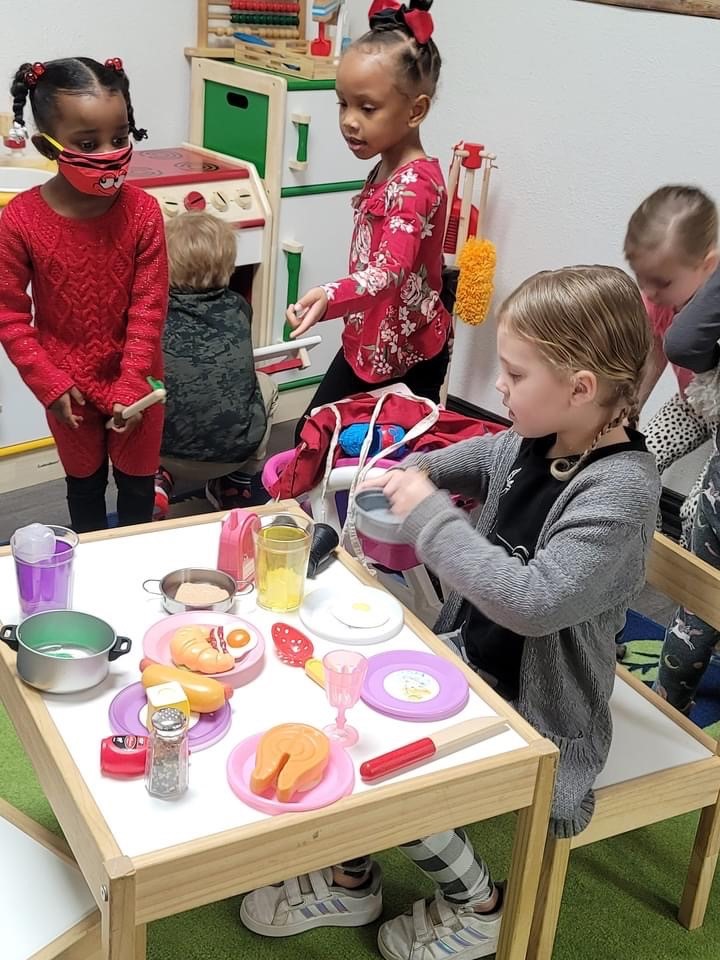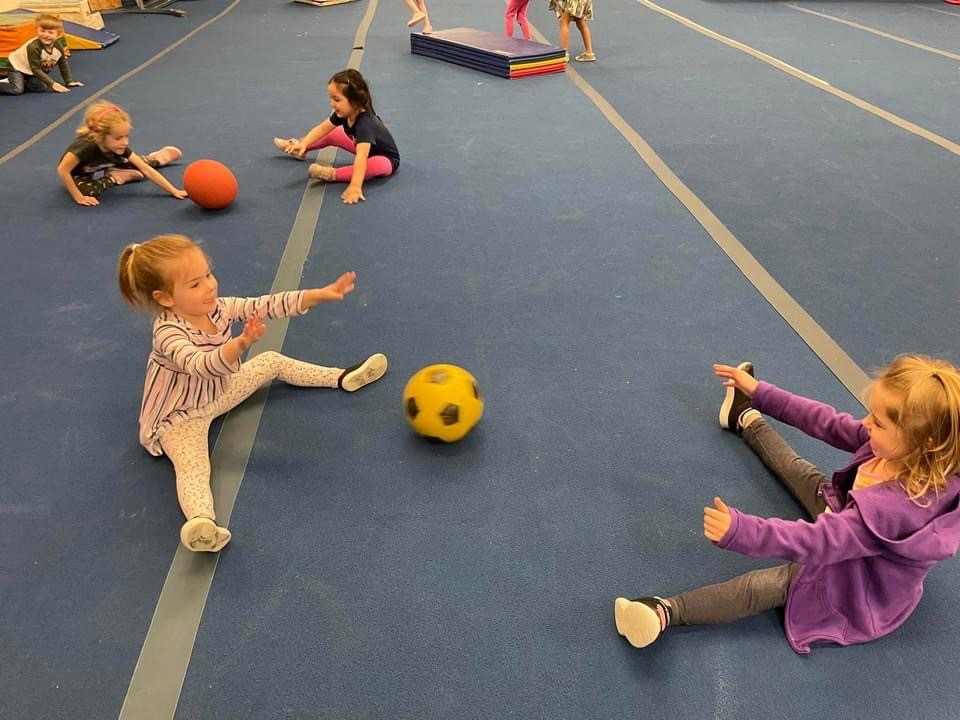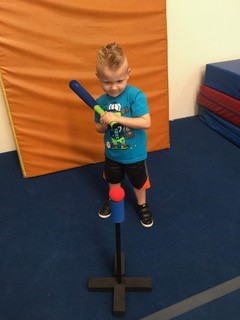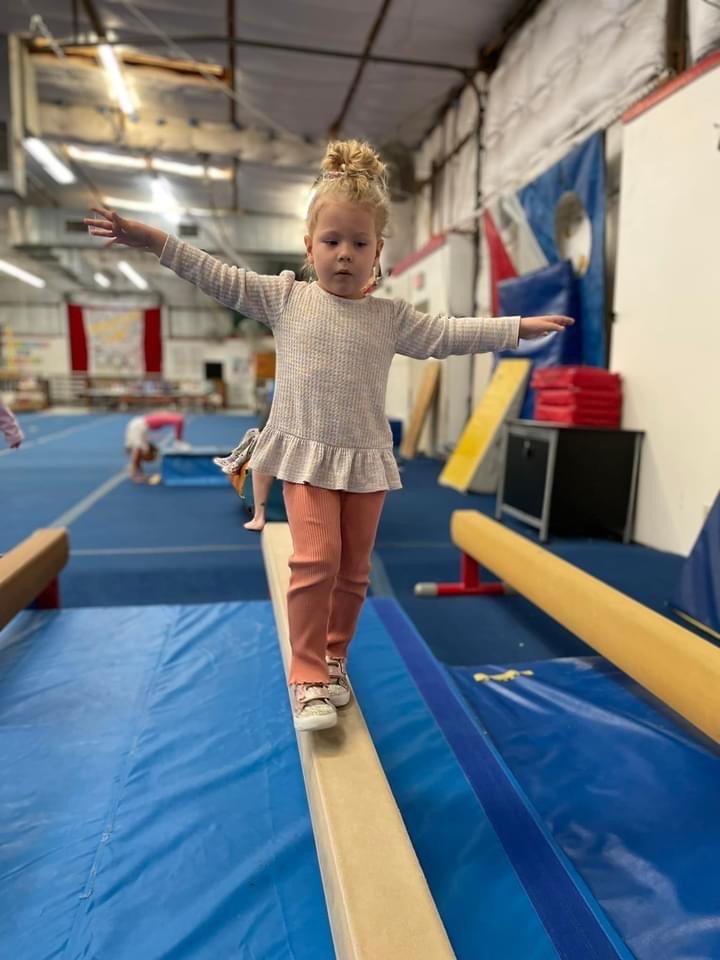Curriculum
- Overview & Requirements
- A Typical Day
- Our Mission
- Program Levels
- Academic Readiness
- Art & Sensory
- Music & Motion
- Story Time
- Creative/Social Playtime
- Gymnastics & Gross Motor Skills
Overview & Requirements
Overview
Edventure Kids Academy is a fully licensed daycare (License Number: 1630165) established to provide your child with the best possible start for their school life.
Our Approach
The Circle Pre-K Curriculum is a research-based, comprehensive program designed to prepare 3-year-olds (PK3) and 4-year-olds (PK4) for kindergarten. It focuses on holistic development—social-emotional, language, literacy, math, and science—using playful, theme-based, and child-initiated activities. Our curriculum products for infants, toddlers, and pre-K are thoughtfully designed to be affordable, comprehensive, flexible, and engaging. These teacher-friendly resources lay the foundation for lifelong learning by nurturing cognitive, social, and emotional development during the most critical early years.
Key Features of Circle Pre-K Curriculum:
• Targeted Levels: Specific, age-appropriate learning milestones for both PK3 and PK4. • Structure: Offers 35 weeks of instruction with 10 thematic guides, featuring softly scripted lessons for educators. • Methodology: Combines teacher-directed lessons with child-initiated play in small and large group settings. • Assessment: Integrates Circle Progress Monitoring (CPM) to track student growth.PK3 vs. PK4 Focus
• PK3 (Age 3-4): Focuses on foundational social-emotional skills, communication, and basic cognitive concepts through hands-on, play-based experiences. • PK4 (Age 4-5): Emphasizes kindergarten readiness with more advanced language, literacy, and math skills. The curriculum is designed for flexibility across various classroom settings and includes tools for family engagement.Requirements
Students must be age 3 to 5-years-old and potty trained.
Age is just a number
The state of Texas says all children must be 5 by September 1st of the year they enter kindergarten. However, just being the right age is not the only factor to consider.
The Kindergarten Survival Handbook by Allana Elovson, PhD. gives several examples of things that your child should know before being enrolled in a kindergarten program. While some of these things may seem like they do not have much to do with school, they are each important stepping stones in a child’s growth and development.
A Typical Day at the Edventure Kids Academy Preschool
7:30- 8:00 a.m.Social Play/Center Discovery Play
8:00- 8:30 a.m.Morning Yoga Practice
8:30- 9:00 a.m.Scissor Skills Practice
9:00 a.m. – 9:30 a.m. Transition into school free choice of centers-manipulatives & home corner rotated welcome activity/ Circle Time/ Morining Meeting/ Job Announcements/Language and Communication
9:30 a.m. – 10:00 a.m.Center Time and Small Group/Free Play Rotation
10:10 a.m. – 10:30 a.m.Circle Time/Writing/Book and Print Writing
10:30a.m.- 11:00 a.m. Outside/ Gym Time
11:00 a.m. – 11:15 a.m.Circle Time/Alphabet Knowledge/Phonological Awareness
11:30 a.m. – 12:00 a.m. Lunch
12:00 p.m. – 12:15 (2pm) a.m. Journals/Art Expression/ Nap/Rest/Quite Box for full time students
12:15 p.m. – 12:30 p.m.Social Play/ Free Play Rotations
12:30 p.m. – 1:00 p.m. Gym Outdoor Time
1:00 p.m. 1:20 p.m.Circle Time/ Science and Social Studies
1:20 p.m. 1:40 p.m.Circle Time/ Book and Print Reading
1:40 p.m. 2:00 p.m.Circle Time/ Closing Reflections and Dismissal Routine/ Story Time
2:00 p.m. 2:20 p.m.Snack Time
2:20 p.m. 2:40 p.m.Journals
2:40 p.m. 3:00 p.m.Outdoor Play/Physical Development/Open Gym Play
3:00 p.m. 3:20 p.m.Circle Time Science and Social Studies
3:20 p.m. 3:50 p.m.Center Time and Small Group/ Free Play Rotation
3:50 p.m. 4:10 p.m.Fine Motor SKill Development
4:10 p.m. 4:30 p.m.Puzzles/Table Top Learning Activities
4:30 p.m. 5:00 p.m.Child Choice Learning Centers
5:00 p.m. 5:30 p.m.Action Songs/Puppets/Doll House
5:30 p.m. 6:00 p.m.Manipulative Play and Free Art Tables
6:00 p.m. 6:30 p.m.Circle Time/ Closing Reflections and Dismisall Routine/Library Word Wall
Our Mission
Our mission is to provide every child with a quality early childhood experience. We strive to create a safe, nurturing and developmentally appropriate environment, which fosters individual needs. We view education as a partnership between parents and teachers. We believe it is essential to develop a good rapport with each child and parent based on open communication and mutual respect. We believe this is the foundation of a successful school experience. We believe in empowering children by offering them opportunities to make decisions and solve problems. It is our goal that children will possess confidence in their abilities and establish lasting relationships with teachers and peers. By offering an engaging curriculum, it is our aspiration that each child will develop a positive outlook towards school, a better appreciation of the world around them, and acquire a lifelong love for learning during their time spent with us.
Join Class Dojo to see pictures and videos throughout the day of your student.
New to Class Dojo?
1. Download the ClassDojo app for Iphone or Android
2. Sign up as a parent
3. Type your code to join the class
P6TWAFHQC Already on ClassDojo?1. Open the app and go to the "kids" tab
2. Tap "add code"
3. Type your code to join the class
If you have any questions about our program please feel free to address them with the director, in our office or contact us here. Thank you in advance!
Program Levels
Our curriculum products for infants, toddlers, and pre-K are thoughtfully designed to be affordable, comprehensive, flexible, and engaging. These teacher-friendly resources lay the foundation for lifelong learning by nurturing cognitive, social, and emotional development during the most critical early years. Our unqiue Movin’ and More lesson plan emphasizes physical education and the importance of gross motor skills. Our gross motor lesson plans include learning through gymnastics, yoga, games and other developmentally appropriate activities. Because EKA is located in a gymnastic facility, there is room for students to explore and learn the importance of early childhood physical education.
Bronze Level
Meets 2 days/week
- Recognizing the alphabet
- Learn numbers 1 – 20
- Learn the days of the week
- Learn the months of the year
- Learn the primary colors and shapes
Silver Level
Meets 3 days/week
- Practice writing the upper and lower case alphabet Learning some letter sounds
Gold Level
Meets 5 days/week
- Additional math readiness skills
- Sounding out words
- Work on Sight Words
- Additional math readiness skills
- Additional gymnastics and physical fitness skills
- Learn about different continents and countries
Academic Readiness
Being ready for kindergarten encompasses much more than having some basic literacy or numeracy knowledge. It includes the ability to listen and ask questions, express thoughts and communicate with others, and demonstrate some self-regulation. Our program is play-based and whole-child focused. Let us help get your child ready for kindergarten – these are the skills we focus on, and we’ll keep you updated at your annual teacher/parent conference.
For advice on how to prepare your child for preschool, please see our FAQ answer here.
Communicating about him/herself and environment
- Know their name (first and last), age and gender
- Name parts of their body
- Know some words for how things feel (hard, soft, smooth, wet, dry)
Understanding and being understood
- Understand the speech of children and adults other than their family members
- Tell someone how they are feeling (tired, sad, happy, angry)
Self-Help and Social Skills
- Be comfortable away from their parents or caregiver, and with new adults and children
- Play with other children without having a lot of fights
Large Movement Skills
- Walk backwards for six or seven steps without turning to look behind
- Run without falling frequently
Small Movement Skills
- Hold a pencil or crayon with their thumb and fingers
- Cut with scissors
Using Their Senses
- See differences in size
- Tell if two smells are the same or different
Recognizing Pictures
- Point to a real object and then find a picture in a book or magazine
Words & Letters
- Books, letters and notes are words written down that tell us things
- Numbers like three, six and two can also be written down as 3,6,2
Movin' & More
- Organised Gross motor skill development
- Participate in physical activity
We use this to assess each child in September, December and May. Once assessed, the assessment is used to help us build an individual curriculum plan for each student. Each student learns at his or her individual pace and we have built our curriculum to allow for this.
Art & Sensory
Art and sensory activities are a big part of our day.
Messy Art is fun and provides a delightful way to learn about the world and it's physical properties. Most children love to get their hands into paint and other gooey materials that "tickle their senses." Messy art lets children discover the emotional pleasures of sensory and tactile play while they learn important lessons of cause and effect and the material properties of matter. What’s more, messy art develops important cognitive, social-emotional and multi-sensory skills. Self directed learning with fluid, sensory and tactile art materials is especially important in early childhood and continues to have benefits for older children as well.
What exactly is "messy art" – is it simply finger-painting? A lot more, actually. Messy Art is a friendly description for art experiences that involve paint and other fluid materials that change with ease as you manipulate them. These fluid "sensory art" experiences provide children with exciting physical contacts that motivate exploration. The fluid nature of paint provides for dynamic and rapidly changing explorations of color, shape and textures on paper. Children often feel very powerful when painting, because the cause and effect of their actions becomes apparent very quickly. Painting allows children to make decisions rapidly, and to operate more independently than they are usually accustomed to. Paints continuously move and blend, creating new combinations and secondary colors. With just a few swift brushstrokes, an entire painting can change and transform into a new creation. Painting is indeed, a powerful process!
Messy Art activities are one of the best ways to promote early childhood learning. Preschool and Kindergarten provide an especially important opportunity for hands-on, self-directed learning. As children grow and advance through elementary school, art continues to provide opportunities for mastery and learning. Art teaches critical thinking, self-expression, problem solving, individuality, creativity and self-esteem.
Messy Art experiences, those that rely on fluid and tactile art materials, provide children with great reward for their efforts. Not only do children often find it exciting to have the freedom to "get messy," but child development theory teaches us time and time again that tactile and sensory experiences are one of the best ways children learn. So designate an area of your room to messy art, cover tables and floors with newspaper if necessary, and find time to tickle your senses!
Article from http://artandcreativity.blogspot.com/2006/09/messy-art-tickle-your-senses.html
Music & Motion
Story Time
The importance of story time
Story Time has many benefits for children other than promoting early literacy and language development. It can help develop their concentration, social skills, communication skills, and encourage their imagination and creativity. Reading to children helps de inspire success, enhance visual discrimination skills, practice auditory processing, reinforce word recognition, examine social situations and behaviors and of course instill a love of books. We read at least once through the day and its a great way to connect the class and have open discussions while we read.
You may find more information in this article: http://www.schoolsparks.com/blog/the-importance-of-story-time
Creative/Social Playtime
Creative play is a vital part of childhood and child development. By interacting with others in play settings, children learn social rules such as, give and take, reciprocity, cooperation, and sharing. Through a range of interactions with children at different social stages, children also learn to use moral reasoning to develop a mature sense of values.What are some other benefits of Creative Play?
Gymnastics & Gross Motor Skills
Our curriculum products for infants, toddlers, and pre-K are thoughtfully designed to be affordable, comprehensive, flexible, and engaging. These teacher-friendly resources lay the foundation for lifelong learning by nurturing cognitive, social, and emotional development during the most critical early years.The Movin' & More curriculum emphasizes physical education for the preschool age child. Spirals EKA program not only assures your child is kindergarten ready, but also emphasizes the importance of physical education, which is typically not inlcuded in traditional preschool programs. In fact, our program has successfully been addressing the physical and educational needs of children for the last 15 years. Preschoolers naturally need to move their bodies. Our unique TRS acreditted curriculum builds in daily gross motor activies while meeting all of your child's kindergarten readiness milestones and accolades.The program includes Gymnastics, Yoga, Ball Play Development, fun songs to move to and various PE games. No matter the what the weather is outside, we have a 8,000 sq ft gymnasium to work on our gross motor development.
"If your children attend daycare or pre-school, try to choose a school with an early childhood education program that integrates movement and physical activity with cognitive learning and places an emphasis on learning and exploration through movement."
SPARK - research-based program of San Diego State University Research Foundation evaluating programs that promote lifelong wellness.
http://www.sparkpe.org/blog/the-importance-of-early-childhood-activity/
